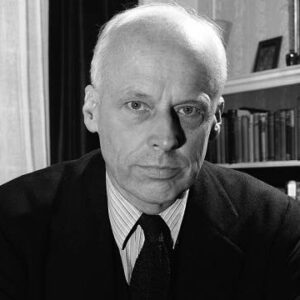The American Presbyterian preacher Norman Thomas is best renowned for leading the socialist movement in the United States for over four decades. As the six-time socialist presidential candidate, novelist, lecturer, and one of the most recognized critiques of American society, he caught the imagination of even those who disagreed with his political ideas. In the view of the rest of the world, he denounced everything that the United States stands for, including military and involvement in the internal affairs of other nations. As a powerful advocate of democratic socialism, his effect on middle-class Americans was substantial, notwithstanding their dislike for socialism as a political ideology. The great dissenter, he opposed America’s involvement in the two World Wars vehemently, although he moderated his stance after the Pearl Harbour attack. As an ardent supporter of international peace, he loathed anything that stood in the way of lasting peace. In addition to vehemently protesting the Vietnam War, he formed various organizations to promote world peace and disarmament. No wonder he garnered the respect of American culture, including those who disagreed with his political ideas.
Youth and Early Life
Born as the eldest of six children of Presbyterian preacher Weddington Evans Thomas and Emma Williams Mattoon, his upbringing was uneventful.
After graduating from Marion High School, he attended Bucknell University for a year before transferring to Princeton University, where he graduated in 1905.
After completing a globe tour, he chose to follow in his father’s footsteps and enrolled in Union Theological Seminary. He graduated from seminary in 1911 and was ordained as a Presbyterian minister.
Norman Thomas’s Career
Initially, he worked as Rev. Henry Van Dyke’s assistant at the famous Brick Presbyterian Church on Manhattan’s Fifth Avenue. After this, he was appointed pastor of the East Harlem Presbyterian Church, where he ministered to Italian-American Protestants.
His anti-American participation in the First World War sermons caused his fellow Princeton grads and a few New York Presbyterian Church officials to reject him.
When the church ceased sponsoring American Parish’s social projects, he resigned as pastor, although he did not officially leave the ministry until his mother’s death in 1931.
It was his stance against the First World War that brought him closer to the vehemently antimilitarist Socialist Party of America (SPA). Soon after, he joined the party and worked tirelessly for its success.
In January 1918, he became the editor of the organization’s new publication, The World Tomorrow, and worked to make it the voice of liberal Christian social engagement.
Soon after transitioning to secular journalism, he joined the Nation magazine’s assistant editor.
He ran for multiple positions on the Socialist Party ticket. These positions include New York Governor in 1924, New York Mayor in 1925 and 1929, New York State Senate in 1926, and Alderman in 1927.
In 1928, he ran for president of the United States as the Socialist Party’s nominee.
This was the first of his six bids for the presidency of the United States. As an articulate advocate, he garnered the admiration of the American middle class.
In 1934, he ran for U.S. Senator from New York and received the second-most votes of any socialist candidate in New York state elections.
The Socialist Party continued to lose strength over time, becoming a weak and insignificant component of the American political system. However, Norman was very pleased to see his plans taken up by Franklin Roosevelt’s New Deal.
Others departed in support of the Popular Front movement of the late 1930s, while some socialists joined the Democratic Party led by Roosevelt. After 1939, several left because of Thomas’ objection to the United States’ engagement in the European and Asian conflicts.
Although he was a staunch supporter of the American war effort after Pearl Harbor, he opposed the imprisonment and forced removal of Japanese Americans.
Becoming a fervent opponent of Soviet communism, he also opposed American foreign policy, which centered primarily on militarization and the expanding dominance of the American military in government.
He attacked the government for the rising rates of poverty and racism, as well as the United States’ interference in the internal affairs of other nations.
In his final years, he was a staunch opponent of the Vietnam War. He was one of the signatories of the “Writers and Editors War Tax Protest” pledge in 1968, pledging not to pay taxes in opposition to the Vietnam War.
Socialism Reexamined, released in 1963, is one of his most well-known works. The book demonstrates his openness to new concepts and his willingness to reevaluate his thoughts and views in light of new theories.
“Is Conscience a Crime?” was published in 1927 and is another of his well-known books. Considered a reasonable and biological explanation of our conscience, this book examines the nature of our conscience.
Personal History and Legacy
He passed suddenly in Cold Spring Harbor, New York while sleeping.
In his honor, the Norman Thomas High School in Manhattan, the Norman Thomas ’05 Library at Princeton University’s Forbes College, and the Three Arrows Cooperative Society Assembly Hall were named.
Estimated Net Worth
Norman is one of the wealthiest and most popular politicians in the world. According to our research, Wikipedia, Forbes, and Business Insider, Norman Thomas has an estimated net worth of $1.5 million.
Trivia
He is the grandfather of Evan Thomas, a columnist for Newsweek.


